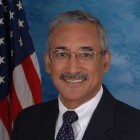
Parole Boards Bar Young Offenders From Chance of Release, ACLU Report Says
|
Broken parole systems across the country mean young offenders who face lengthy prison sentences do not have a meaningful chance at release, says the ACLU in a new report.
Juvenile Justice Information Exchange (https://jjie.org/tag/aclu/page/2/)

Broken parole systems across the country mean young offenders who face lengthy prison sentences do not have a meaningful chance at release, says the ACLU in a new report.

"First-degree murder is a serious crime, and it carries with it serious consequences," attorney general Bill Schuette said in a news release.

Recently, the American Civil Liberties Union (ACLU) and Human Rights Watch published a new report titled “Growing Up Locked Down: Youth in Solitary Confinement in Jails and Prisons Across the United States.”
The publication involved interviews with more than 125 juveniles in 19 states, alongside detention officials in 10 states.

CHICAGO -- Even as national organizations rallied this week to end solitary confinement for incarcerated juveniles across the country, the local branch of American Civil Liberties Union is working with prison officials and the federal court to focus on the issue here. The goal: settle a lawsuit on behalf of 2,217 incarcerated youth with the Illinois Department of Juvenile Corrections over the system’s inadequate services and often-hostile environment. A preliminary agreement calls for curbing the growing practice of solitary confinement in youth centers, which activists say constitutes “torture,” given its potential for causing long-lasting psychological harm. The proposed settlement, which is due for a fairness hearing in federal court in Chicago on December 6, would be the latest victory in a larger movement to end the punitive isolation of youth in custody. In June, Congress held its first hearing on the issue of solitary confinement within U.S. prisons, where roughly 80,000 inmates are in “restricted housing“ at any given time nationwide, according to a 2005 census of adult inmates by the federal Bureau of Justice Statistics.

Nine years since it was first petitioned to do so by families of people behind bars, the Federal Communications Commission appears closer to imposing a limit on the soaring rates some prisoners have to pay to make interstate telephone calls. It won’t say when it will take action, however. The FCC’s consumer advisory committee submitted a list of recommendations last month urging the FCC to ensure that prices for phone calls from prison are kept to “reasonable” levels. And both the FCC Chairman Julius Genachowski and FCC Commissioner Mignon Clyburn have come out in support of limiting charges by private companies holding monopolies over prison telephone service in many states. The push to cap prison phone rates started when Martha Wright, a grandmother who could not afford to call her grandson when he was incarcerated, filed a petition in 2003 asking the FCC to take regulatory action.

Wednesday’s 141-page report, which captured harrowing accounts from youngsters locked in solitary for up to months at a time, if not longer, called for an end to the practice, the exploration of remedial alternatives and changes to state and federal laws that currently allow for the practice.

A conservative think tank in Texas and the ACLU may seem to have little in common. But they and other conservative, liberal and nonpartisan groups are working — successfully — on juvenile justice law changes that are putting minors firmly in juvenile court, out of incarceration with adults and in community-based rehabilitation. “There’s a great opportunity for collaboration across the aisle on this issue,” said Marc Levin, senior policy advisor at Right on Crime. The Right on Crime initiative started in 2010 inside Austin’s Texas Public Policy Foundation (TPPF), a conservative think tank. Right on Crime evaluates adult and juvenile corrections reforms through a lens of effectiveness and cost savings and promotes its findings in other states. For the last few years, as state revenues shrink and budgets must be slashed, the Texans’ money-saving ideas are catching more ears.

Recently, the American Civil Liberties Union (ACLU) hosted a congressional briefing on the 2011 documentary film “The Interrupters.”
Sponsored by the ACLU’s Washington Legislative Office, the briefing featured statements from Congressman Bobby Scott (D-VA) and a panel discussion featuring Alex Kotlowitz, the producer of “The Interrupters” and author of the book “There Are No Children Here.”
“The Interrupters” focused on Chicago’s CeaseFire movement, a grassroots project in which members of communities seek to reduce acts of youth violence through localized, concentrated intervention programs.
CeaseFire employs “violence interrupters,” community members who work with youth in high-violence areas, to pinpoint and prevent potential crimes before they transpire. Two “violence interrupters,” Cobe Williams and Ameena Matthews, were present at the ACLU’S briefing in Washington, D.C.
The event drew the attention of a diverse group of attendees, including high school principals, public health officials, law professors and congressional staff. Congressman Scott hailed the Youth PROMISE Act -- proposed legislation that would provide funding for comprehensive, community-based intervention programs, such as CeaseFire -- as a potential means of curbing street gang activity and juvenile delinquency. The Youth PROMISE Act -- officially titled the Youth Prison Reduction through Opportunities, Mentoring, Intervention, Support and Education Act -- would provide funding for evidence-based practices regarding the prevention of juvenile delinquency and gang activity. The bipartisan-sponsored bill would also amend the Juvenile Justice and Delinquency Prevention Act of 1974 by creating a Youth PROMISE advisory panel to aid the Office of Juvenile Justice and Delinquency Prevention.

CINCINNATI - Learning can be difficult under the best of circumstances. But for those young people inside the nation’s youth detention centers, the barriers to learning can be enormous indeed. This was just one of the messages that came out of a panel discussion at a conference in Cincinnati today sponsored by the Children’s Defense Fund, the first such large-scale meeting of the child advocacy organization in a decade. The panel, Meeting the Educational Needs of Children in the Juvenile Justice System: Challenges and Opportunities, concentrated on highlighting problems and introducing ideas for reforming detention center school systems.
Panelists, including David Sapp of the American Civil Liberties Union, Lia Venchi, a teacher at a school for youth in detention and David Domenici, a member of the See Forever Foundation, said most of the reforms implemented in schools within juvenile justice facilities have been forced as a result of litigation or administrative complaints, making public attention the biggest force for change in what are usually highly secretive environments. The children who attend school in juvenile justice detention facilities have much higher needs than those in the general population, the panelists said.

The first leg of the 2012 presidential race ended in a virtual dead heat between Republican candidates Mitt Romney and Rick Santorum, with the former Massachusetts governor edging the former Pennsylvania senator by a mere eight votes in Tuesday’s Iowa caucuses. With several primaries scheduled for the month of January, the results of Iowa’s contest may be just the beginning of a long and potentially tumultuous road to establishing a Republican challenger to President Obama this November. In regards to juvenile justice and education issues, both Romney and Santorum have figured prominently in establishing reform measures within their respective states. Romney served as the governor of Massachusetts from 2003-2007, overseeing an overhaul of the state’s Juvenile Justice Advisory Committee during his first year in office. In 2003, the American Civil Liberties Union criticized Massachusetts officials for failing to comply with the Disproportionate Minority Confinement provision of the Juvenile Justice and Delinquency Provision Act [JJDP] of 1974. In response, the Romney administration outlined a complete reorganization of the state’s Juvenile Justice Advisory Committee [JJAC], a State Advisory Group established by a 2002 addendum to the JJDP Act.